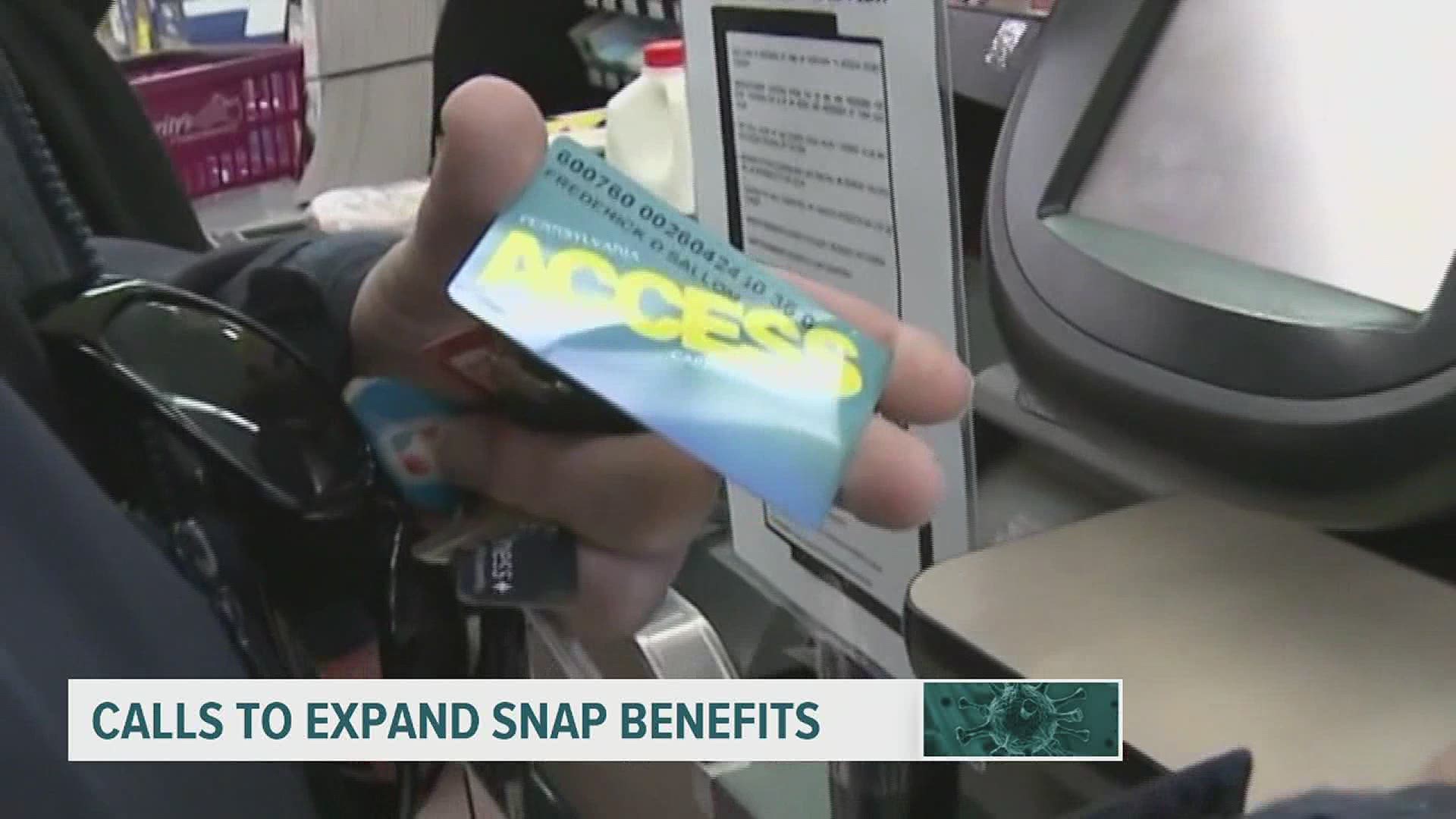HARRISBURG, Pa. — The Wolf Administration is urging Congress to extend food assistance programs across the Commonwealth. Between March and June, more than 5.5 million people turned to Pennsylvania food banks for help. In a typical year, they serve 2.2 million people.
However, there has been a slight decline in the number of Pennsylvanians who are enrolled in the Supplemental Nutrition Assistance Program (SNAP) since May.
“We started to see a decline in the enrollment,” said Secretary Teresa Miller of the Pennsylvania Department of Human Services (DHS). “In many cases, it was because their income was over so we were thinking it was either because of the Pandemic Unemployment [Compensation] or potentially they were going back to work and making too much to be eligible.”
DHS is still anticipating a prolonged need and has seen an overwhelming surge of applications to date. There are approximately 1.83 million Pennsylvanians enrolled in SNAP.
DHS urged Pennsylvania’s Congressional Delegation to consider what states need to properly respond to this need in their next relief package.
In a letter to congress, DHS asked federal lawmakers to extend emergency SNAP allotments to all SNAP recipients. Currently, 40 percent of Pennsylvania households receiving SNAP benefits are not eligible for these extra payments.
“The 40 percent excluded are among the poorest SNAP households who receive the maximum regular SNAP allotment because of their very low income,” explained Miller.
In the letter, Secretary Miller urged Pennsylvania’s Congressional Delegation to support:
• Extending emergency SNAP allotments permitted under the Families First Coronavirus Response Act (FFCRA) to all SNAP recipients rather than just households making less than the monthly maximum as permitted by the United States Department of Agriculture (USDA). This approach excludes 40 percent of SNAP recipients, many of whom are the lowest income SNAP recipients;
• Increasing the maximum monthly SNAP benefit, as included in the Heroes Act passed in May, by at least 15 percent and the minimum benefit to at least $30 for the duration of the economic crisis so the 1.8 million Pennsylvanians who rely on SNAP have enough funds to feed themselves and their families and support local food retailers, grocers, and agricultural producers;
• Extending the Pandemic Economic Benefit Transfer (P-EBT) program for the full 2020-21 school year so Pennsylvania can continue to provide assistance to families of children who would normally receive free or reduced-priced meals if their school was open for in-person instruction. This benefit has been a resource for families who would not otherwise have children at home, and because P-EBT funds carry the same stipulations as SNAP benefits, they carry the same economic boost to food retailers across our commonwealth. This program must be extended and clarified in order to account for the varying educational plans for the 2020-2021 school year.
• Creating certainty for states administering assistance programs by preserving waivers that help states maintain access to critical assistance programs, mitigate risk of spreading virus during required interviews with benefit recipients, and ease workflow and processing times as states anticipate increasing assistance applications without an FPUC is extension. The USDA has indicated an interest in returning to normal operations, despite COVID-19 remaining an ongoing, serious threat. Secretary Miller also encouraged tying this flexibility to state and federal disaster declarations to give states better predictability and ease a transition back to normal workflow; and,
• Resuming FPUC payments and extending additional stimulus funds to Pennsylvanians affected by this crisis.

